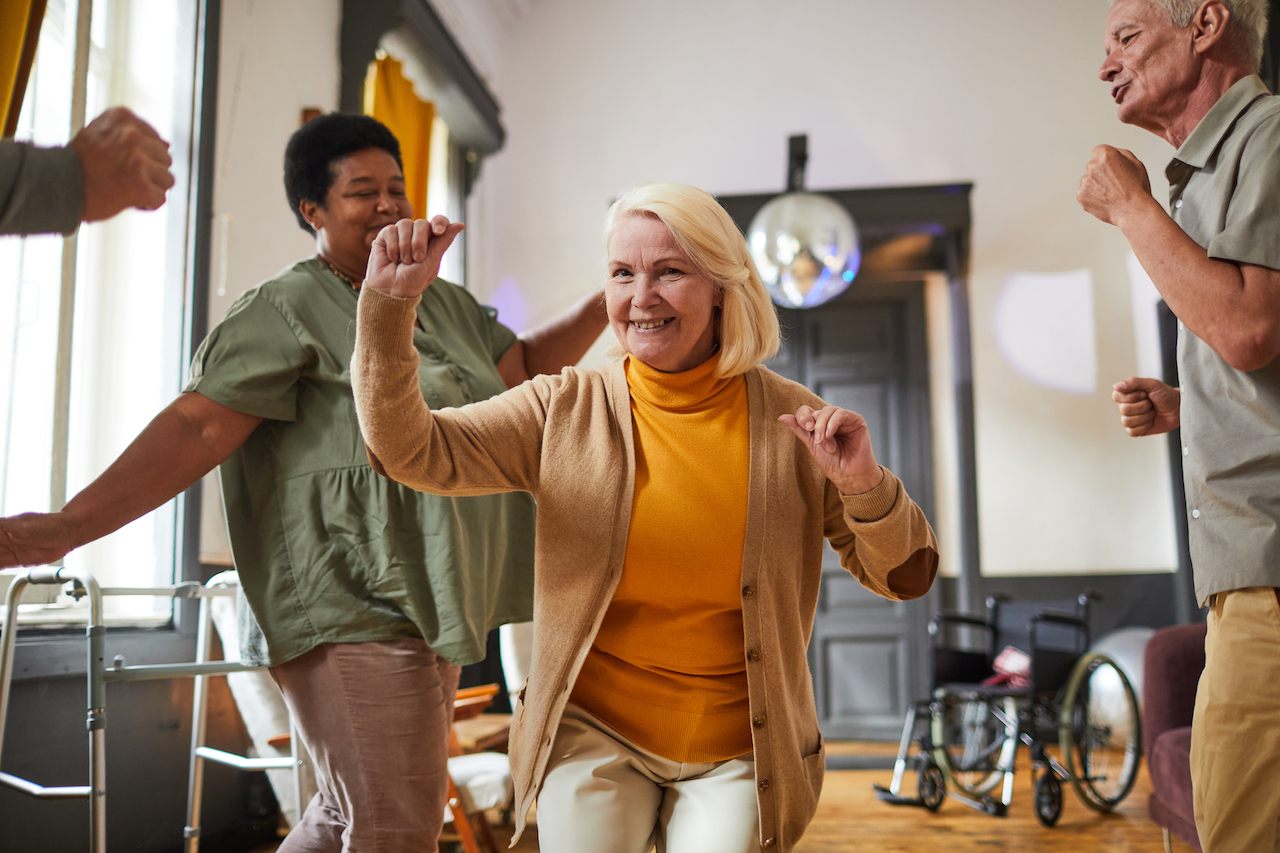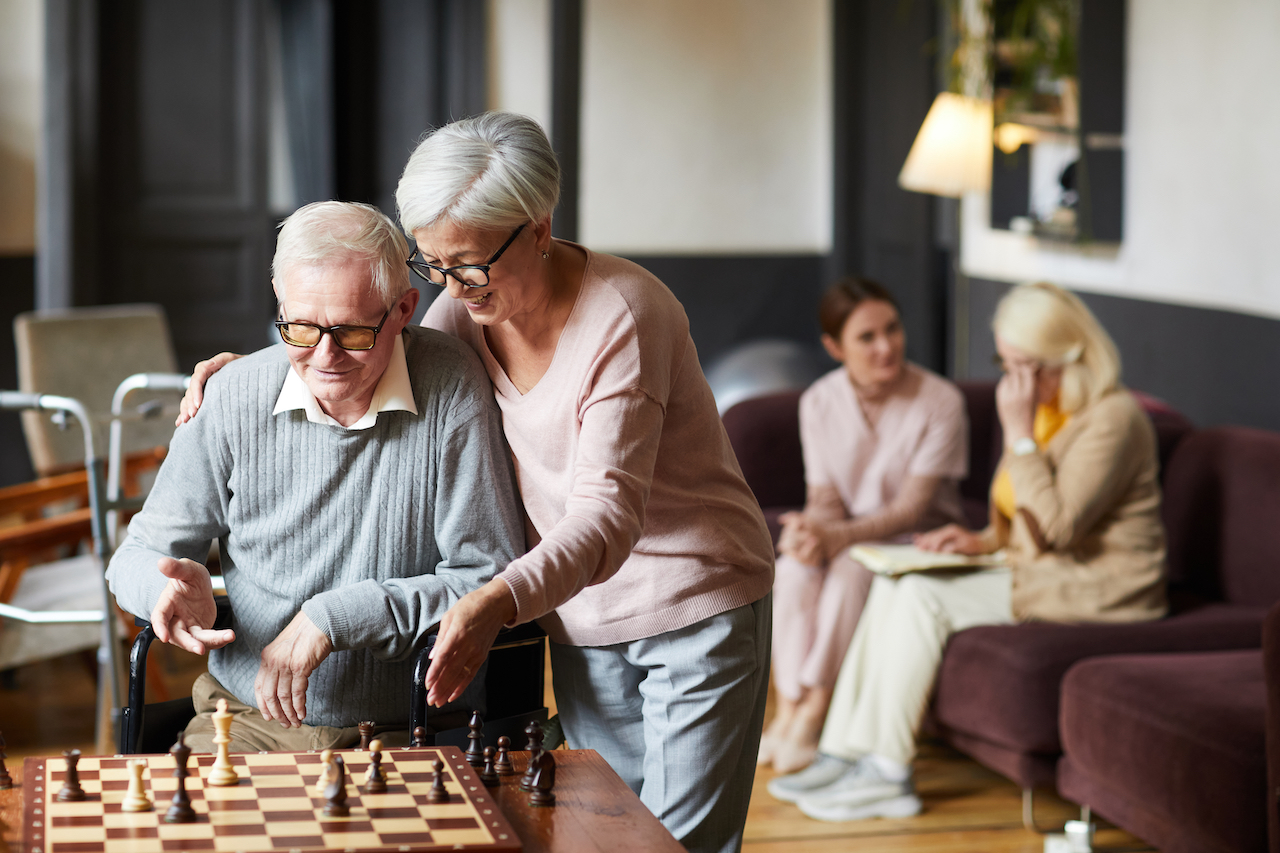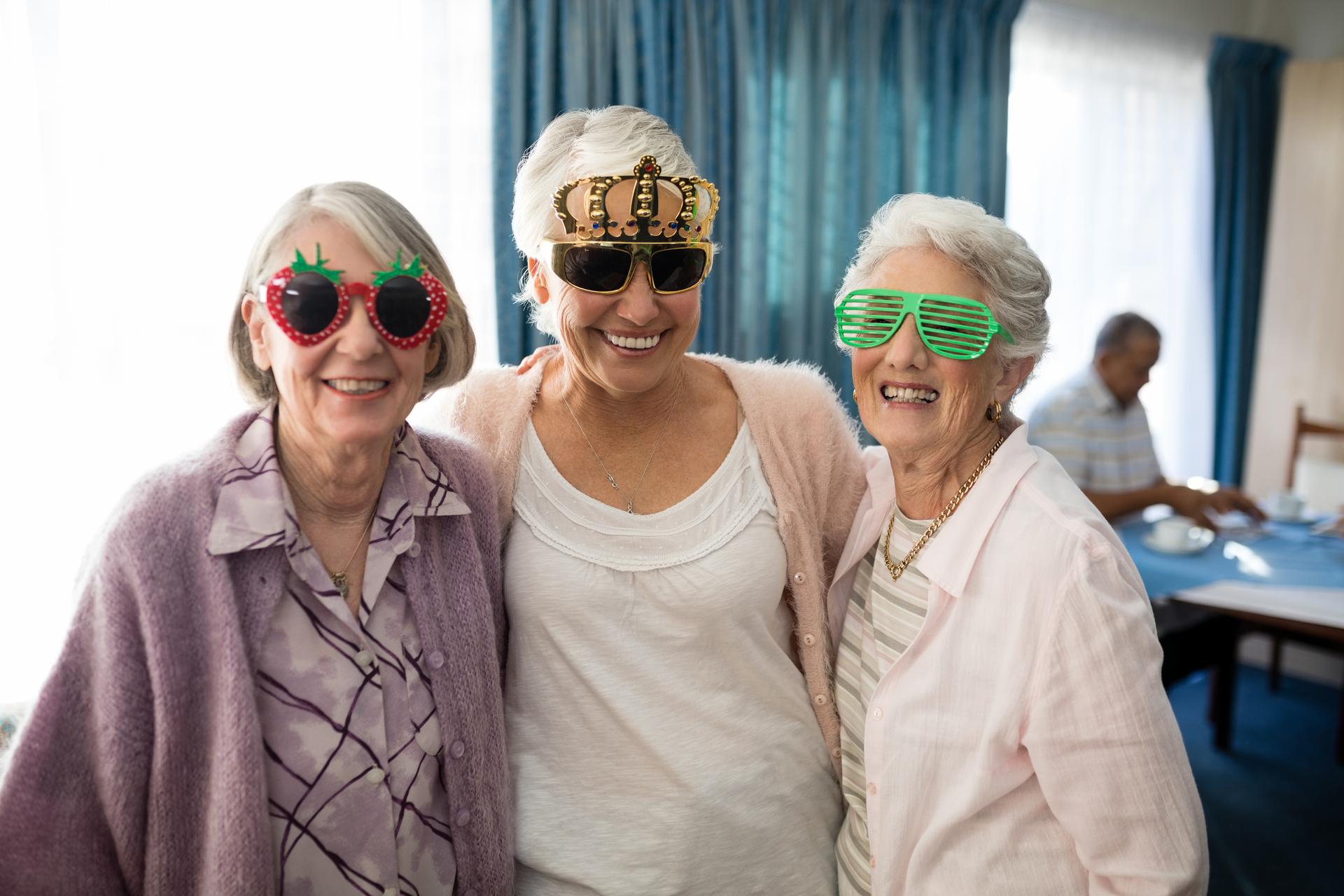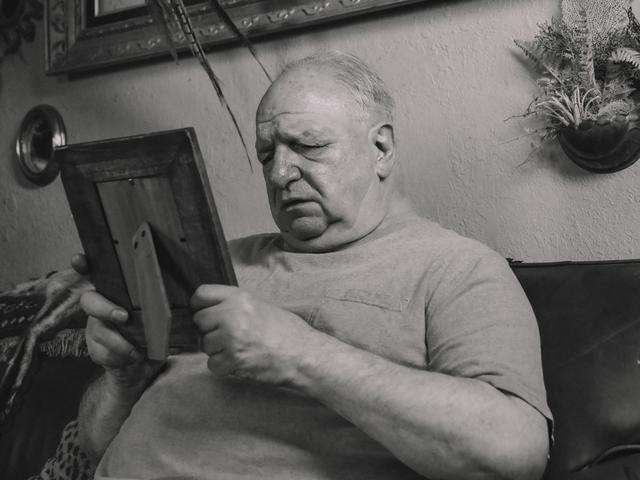Assisted Living
Think Positive: Moving Into Assisted Living Can Make Senior Life Better
Assisted Living
Think Positive: Moving Into Assisted Living Can Make Senior Life Better
Understand the positive benefits of an assisted living community
The decision to leave the family home and move into senior living or assisted living is not easy. Elderly parents or seniors often have negative ideas about the transition, which makes it more difficult. Having a change of attitude can make all the difference. Usually, a senior living community improves the lives of aging loved ones and their families when needed. Here are some ways to see the positive benefits.
Many people incorrectly assume an assisted living move is an inherently less desirable option than aging at home for an aging parent. In the past, and probably what older adults remember, the only options were nursing homes, which are very different from these living communities.
Contrary to what many believe, moving a loved one to a new community is not akin to abandonment—in many cases, the decision to move elderly parents comes from love and concern, and a new living space often improves the lives of seniors. The decision, although often difficult, can positively affect your senior. Moving a loved one does not have to be a negative experience. Many benefits come with the transition. Here is some information on what's included in Assisted Living.
Happiness Increases in an assisted living community
It has been proven that seniors with more social interactions are less likely to suffer depression. Isolation is common in seniors with no social outlets or mobility issues.
Assisted living includes care and provides planned social activities and outings for social engagement and interaction with other community members. These interactions create new relationships and bring joy to residents.

Socialization
In assisted living, your loved one will be surrounded by other seniors in similar life stages. This can create a strong sense of community and provide opportunities for socialization and new friends. In many assisted living communities, residents eat meals together in a common dining area, encouraging socialization and a sense of community.
They have improved nutrition and diet
Another benefit of assisted living is that residents can access nutritious meals prepared by trained chefs or dietary staff. Assisted living communities offer several menu options for different dietary needs and preferences. Maintaining a healthy diet is crucial for seniors. Seniors in assisted living can eat meals with other residents, which can help improve their nutrition.
Assisted living communities typically have on-site restaurants that serve nutritious meals cooked by professional chefs. Meals are often served family-style, which provides an opportunity for socialization around the dinner table. In addition to delicious meals, it becomes more critical to maintain a healthy diet. Assisted living communities also typically offer healthy snacks and drinks daily to keep residents fueled and hydrated.

Staying hydrated is very important
Maintaining hydration is crucial for seniors, especially those taking medication or with chronic health conditions. Assisted living communities typically have on-site staff to help residents with their hydration needs. In addition, many assisted living communities offer water stations throughout the community where residents can fill up their water bottles or cups.
Health benefits of hydration
There are many health benefits of staying hydrated, including:
- Preventing constipation
- Flushing out toxins
- Maintaining cognitive function
- Reducing the risk of UTIs
- Boosting energy levels

Activities and entertainment
Most assisted living communities offer a variety of scheduled activities and outings for residents to be active and enjoy. These activities are designed to promote socialization and exercise classes. Assisted living communities often have on-site amenities such as fitness centers, swimming pools, game rooms, walking trails, gardens, and libraries.
In addition, many assisted living communities offer off-site scheduled outings, events, and excursions, such as trips to the movies, museums, or concerts. These activities provide opportunities for adventure, socialization, and physical activity.

Continued education and instruction
Individuals in an assisted living community have opportunities to continue learning through various educational and instructional programs. These programs can help keep residents mentally sharp and engaged.
Many assisted living communities offer on-site amenities such as libraries, computer labs, and classrooms. In addition, many assisted living communities provide off-site excursions to local colleges and universities, museums, and art galleries. These activities provide opportunities for intellectual stimulation and continued learning.
Participating in these mentally stimulating activities can help your loved one maintain a sense of purpose and improve their overall well-being.
A more active lifestyle
Assisted living communities often encourage residents to lead more active lifestyles. This is achieved by providing physical activity opportunities, such as exercise classes and outdoor walking areas, as well as access to amenities like swimming pools, libraries, game rooms, and gardens.
As seniors age, getting out and trying new things can be more challenging. Assisted living communities provide an excellent opportunity for seniors to find new hobbies and interests. Residents can explore many options with on-site amenities like libraries, game rooms, arts and crafts studios, and more.
Additionally, many assisted living communities offer off-site excursions and outings that allow residents to experience new things in their community.

Improved mental and physical health
The positive effects of assisted living can improve your loved one's mental and physical health. Assisted living can help improve mental health by providing social interaction, stimulating activities, and a sense of community. Additionally, physical activity opportunities and access to nutritious food can improve physical health.
When considering a move to assisted living, it is essential to remember the many positive benefits this type of community can provide. Assisted living can offer seniors a higher quality of life by increasing happiness, safety, and care. Additionally, assisted living can provide opportunities for socialization, mental and physical stimulation, and improved nutrition. Remember these positive benefits if you are considering assisted living for your loved one.
Health Outcomes Improve in assisted living facilities
In assisted living, residents receive personalized care services and assistance with their daily needs. Assisted living staff are available 24 hours a day to help residents with tasks such as bathing, dressing, eating, and using the restroom. With better assistance in a resident's care, such as help with daily activities or medication management, health issues are handled by a professional medical team that supports residents around the clock.
When health and medical issues are addressed promptly, and seniors live in communities built for their needs, the chances of health incidents decrease.
Assisted living staff are available and can offer assistance with these activities as needed, which can help improve your loved one’s quality of life.
Dementia and Alzheimer’s Improve in an assisted living facility
Staying socially active, both mentally and physically, can help reduce the risk of developing dementia or Alzheimer’s. Assisted living facilities provide many opportunities for social activities plus mental and physical stimulation.
Studies have also shown that social interaction helps slow dementia and Alzheimer’s (Biomedical Science). There are always other residents and caretakers in an assisted living community to interact with common areas, activities, and programs to keep residents engaged, entertained, and socially active.
If a community offers memory care, find out if they have a transition program to make the next move easier.
Reduced Loneliness and Isolation
A move to an assisted living facility can help reduce loneliness and isolation in the first few weeks by providing opportunities for socialization and connection. When seniors live in assisted living communities, they are surrounded by other people their age who are going through similar life experiences. This can create a strong sense of community and provide opportunities for friendships.
Additionally, many assisted living communities offer various activities and programs designed to stimulate the mind and body. Participating in these activities can help your loved ones maintain a sense of purpose and improve their overall well-being.

Greater sense of safety and security
Assisted living communities are designed with residents' safety and security in mind. Most communities have 24-hour security staff and emergency call systems that allow residents to get help instantly if needed.
Living alone can be stressful for seniors who worry about being able to take care of themselves or get help in an emergency. Assisted living communities have staff on-site 24 hours a day to provide assistance and maintenance as needed.
In addition, many communities have security features like alarms and cameras to help keep residents safe.
Most assisted living communities have increased safety and security resources. This increased sense of security can improve your senior's quality of life. Assisted living staff are also trained in emergency procedures and must complete CPR training. You can rest easy in an emergency, knowing that your loved one is in good hands. Assisted living allows seniors to live in a safe and secure environment.
Support Groups
Most communities offer a support group for new residents. You may also find they have a network of existing residents who enjoy taking new and potential new residents under their wing. They enjoy introducing themselves to the community and their new environment, which may even help them get settled into their unique living situation. They may even extend an invitation to join them in the dining room.
Additionally, communities may have dementia support groups, grief support, and a family council and resident council.

Transportation and independence
Many assisted living communities offer transportation services to help residents get around. This can be an excellent way for your loved one to maintain their independence and continue to live an active lifestyle without the help of a family member or adult children to get around.
Assisted living communities also often have on-site amenities like beauty salons, barbershops, and exercise facilities, which can help your loved ones feel like they are living in their own home. Whether for errands, doctor’s appointments, or social outings like movie night, this can relieve family members who live far away or have busy schedules. Assisted living communities also offer scheduled transportation services so residents can enjoy outings and social activities outside. Additionally, transportation services can provide peace of mind for seniors, elderly family members, and their loved ones.
Medical Appointments
Assisted living communities can help seniors maintain their independence by providing transportation and other medical services to medical appointments. In addition, many communities have on-site staff members who can assist with escorting a senior to their appointment. This can help your loved one live a healthier and more independent lifestyle than family members.
Continued Maintenance of Living Spaces
When seniors move into assisted living, they no longer have to worry about the upkeep of their living spaces. Assisted living staff take care of all the cooking, cleaning, and maintenance so that residents can relax and enjoy their retirement.
They no longer need to mow their lawns, shovel their driveways, and take care of other home maintenance tasks; keeping up with the physical demands can be challenging. Assisted living communities take care of all the maintenance tasks so residents can enjoy their retirement.
Improved Mental and Physical Health
The positive effects of assisted living can improve your loved one's mental and physical health. Assisted living can help improve mental health by providing social interaction, stimulating activities, and a sense of community. Additionally, physical activity opportunities and access to nutritious food can improve physical health.
When considering a move to assisted living, it is essential to understand the many positive benefits this type of community can provide. Assisted living can offer seniors a higher quality of life by increasing happiness, safety, and care. Additionally, assisted living can provide opportunities for socialization, mental and physical stimulation, and improved nutrition.
While all assisted living facilities provide basic needs like meals and medication assistance, some stand out for their expansive offerings. Here are three communities that go above and beyond to create a five-star experience:
The Springs of Monmouth in New Jersey features an on-site movie theatre, heated indoor pool, salon and spa, and wellness programs.
Pacifica Senior Living in California offers beachfront living with ocean views and amenities like a putting green, dog park, and outdoor BBQ area.
Brookdale Senior Living in Tennessee offers various physical activity options, including an on-site fitness center, walking trails, and a swimming pool.
When choosing an assisted living facility for your loved one, look for communities that spark their interest in what they loved to do, perhaps in their younger years. They can probably still do those things; they must do them differently.
Exercise Becomes Safer
Everyone understands the positive impact of exercise and physical activity, from mental to heart health. However, it is even more critical for seniors. Assisted living communities are designed to be accessible for residents and have a staff member offering exercise and wellness programs encouraging physical activity. Seniors who exercise showed improved mental and physical health and cognition (U.S. National Library of Medicine).

New Hobbies Become Available
One of the best things about assisted living is that residents can access new hobbies and activities they may not have had before. Assisted living communities offer a variety of programs and amenities that allow residents to pursue new interests or continue existing ones.
Some examples of hobbies and activities often available at assisted living facilities include arts and crafts, cooking, painting, gardening, golf, dancing, and more.
With so many benefits, it’s no wonder that assisted living is becoming a popular option for seniors. If you’re considering assisted living for your loved one, remember to remember the many benefits. Assisted living can provide your loved one with a higher quality of life by increasing happiness, safety, and care. Additionally, assisted living can provide opportunities.
As we’ve mentioned, assisted living communities offer amenities and activities that engage residents. Residents often learn new things, discover new interests, and become more active in recreational activities such as theater, arts, reading, and more. With more resources, seniors' lives become more vibrant.

Anxiety and Depression Decrease
Moving into an assisted living community can help reduce anxiety and depression for seniors. A big reason for this is the available socialization opportunities when residents interact with others; they feel more connected, supported, and valuable. These relationships can help lessen feelings of loneliness, isolation, and depression (Psych Central).
Seniors who live alone (as in not in a senior community or assisted living community) can experience anxiety and stress due to being alone. This can cause them to stop engaging in certain activities because they are no longer comfortable with them: going to the store alone, driving, caring for themselves, and interacting with others. This is alleviated in safe, active assisted living communities, and seniors can return to activities they once enjoyed.
Family Life Can Improve
Family, caregivers, and friends are also happier with this new life chapter. Loved ones can feel secure knowing that the senior in their life is getting everything they need. It brings peace of mind and can even increase the quality of time spent. Assisted living provides primary day-to-day care so family and friends can enjoy the time spent with their aging loved ones.
Volunteering and Community Involvement
Most people need a sense of purpose and a feeling of being useful. The National Institute on Aging indicates that volunteering may lower one's risk of health-related issues and dementia. Many seniors enjoy mentoring students, working at a local museum, railroad, or zoo, or volunteering at a non-profit fundraiser.
Food drives, clothing drives, animal shelters, trash clean-ups, and feeding the homeless are a few of the many opportunities they may have to give back to their community and others.

Life Becomes More Enjoyable
Sometimes, seniors fear moving to assisted living, thinking it will limit them by revoking their independence. However, what happens is often the opposite. When living in a supportive environment with resources and care available, seniors can enjoy life in a fun and worry-free environment.
Remember that many seniors find it easier to get past the transition period and settle into their new apartment by bringing their essential personal belongings, unique handmade throw rugs, and family photos when they move in. You may want to consider hiring a professional senior move manager. They can act as a third party to help decide what items to pack and bring.
Eventually, the seniors will realize they no longer feel the burden of their home and paying bills and will enjoy living in their new space in a well-maintained community. Make sure to spend time with them and reassure them. It makes sense that it may take them a little while, but after a few weeks of patience and understanding, they will emotionally move on from their previous home.
The significant shift from independent living to senior living or assisted living can seem daunting and certainly stressful. Some seniors and their families are concerned about a negative experience or transition; however, it should be a positive change that will improve the senior's overall health, happiness, and lifestyle after the transition. Although finding the right community for you or your loved may be challenging, it is worth it.
_________________________
This article is intended solely for informational purposes and should not be construed as medical, legal, or financial advice. It does not establish a professional relationship between Purple Door Finders and the user. For any personal matters or decision-making, it is strongly recommended to seek guidance from a qualified healthcare provider, attorney, or financial advisor. While links to third-party websites are provided for your convenience, please be aware that Purple Door Finders neither endorses nor assumes responsibility for the content of these external sites.
FAQ
How to convince a parent to go to assisted living?
The best thing to do is start the conversation BEFORE a crisis happens. Help your parents understand you are only doing research, and if they find a property early, it puts them ahead of the game if things were to change in their lives. Most communities will allow you to place a deposit and go on a waiting list until you're ready. This will put you in control.
When is assisted living necessary?
As parents or loved ones age, they may not be the best steward of their health and safety. Start by speaking with other family members, caregivers, and the loved one's physician. Health and safety are the most important, and feedback from a doctor or licensed caregiver can give insights into the health concerns and safety issues. In addition, your ability to take some actions could depend on the state of physical and cognitive health and legal standing.
What does assisted living provide?
Assisted living provides a housing situation to help residents maintain their independence while receiving some assistance with the "Activities of Daily Living." Specifically, meal preparation, eating, toileting, bathing or showering, transferring from bed to chair, medication management, personal hygiene, and dressing. In addition, an assisted living community typically offers social and physical activities and transportation.



